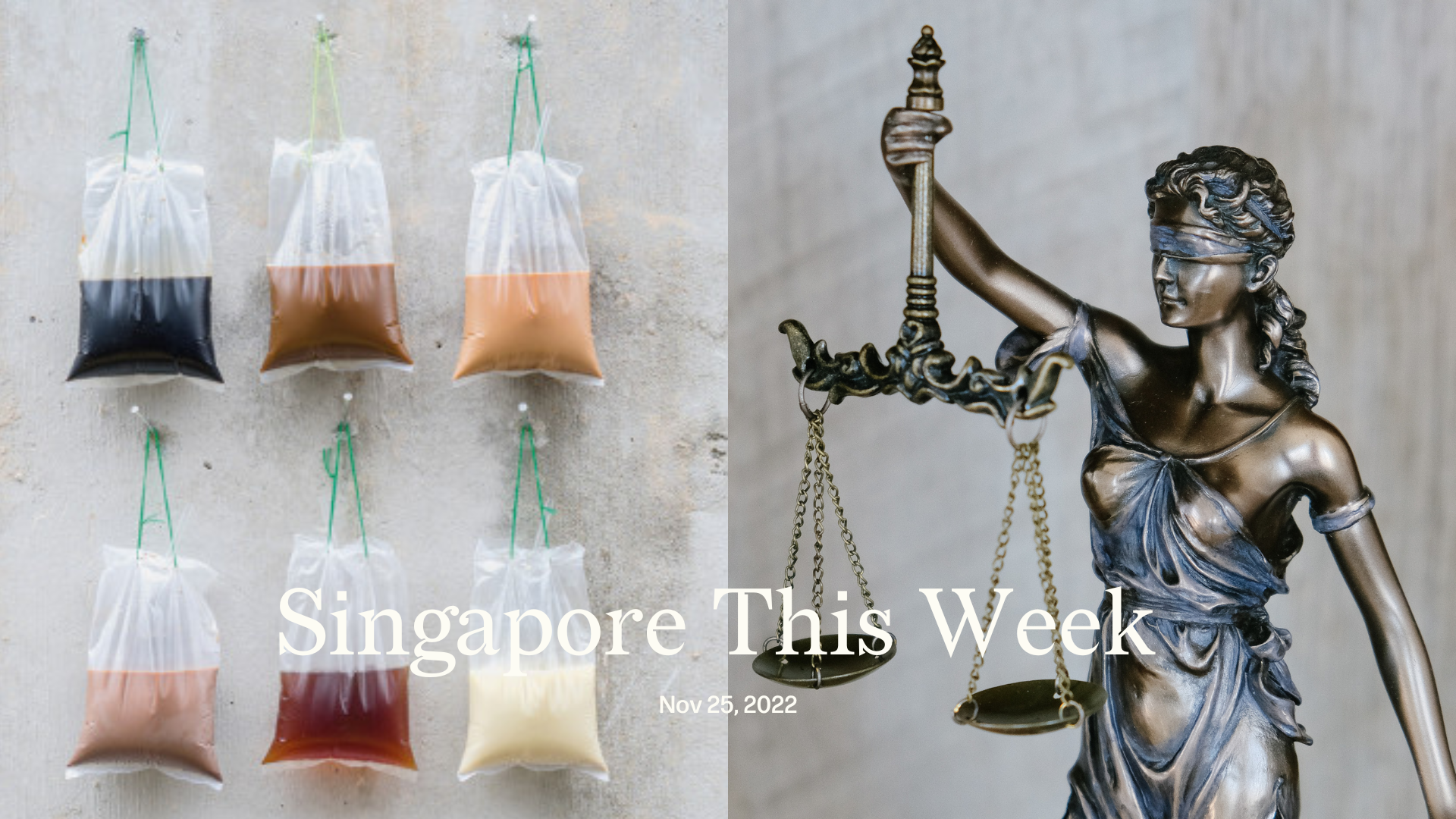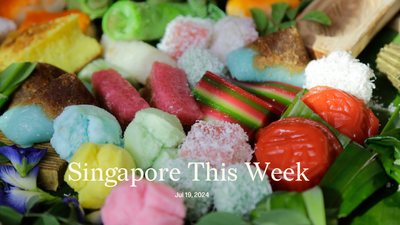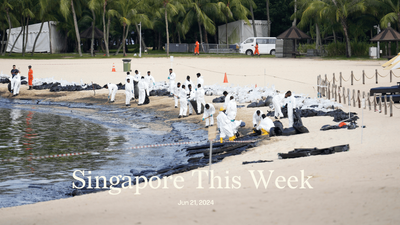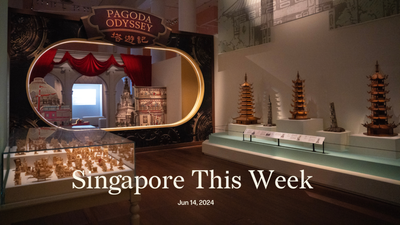Society: Tan Boon Lee and the ghost of Lee Kuan Yew
One of 2021’s viral videos showed Tan Boon Lee, a senior lecturer at Ngee Ann Polytechnic’s School of Engineering, publicly admonishing Dave Parkash, of mixed Indian-Filipino ancestry, for dating a Thai-Chinese girl (who was filming them). “I have nothing against Indians, but I think it is racist for an Indian to marry a Chinese girl,” said Tan. He also told Parkash that he was “preying” on a Chinese girl and he should instead “marry an Indian”. Last week, Tan pleaded guilty to one count of wounding an individual’s racial feelings, for which he can be fined and jailed up to three years. The public prosecutor is seeking four weeks. What’s odd is that Tan was simply channelling his inner Lee Kuan Yew. “If your child brings back a boyfriend or a girlfriend of a different race, will you be delighted? I will answer you frankly. I do not think I will,” said Singapore’s first prime minister, from whom many draw inspiration, in 2004. In the 2011 book Hard Truths, Lee went further, saying that if his daughter wanted to marry a “black African”, he’d tell her, “You’re mad.” Are Tan’s words worse than Lee’s? Is saying it in a book more acceptable than on the streets? The establishment remains unwilling to acknowledge Lee’s racist words and policies, and the effect they might have had on society. Rather than selectively defining racism and occasionally knocking the symptoms of Lee’s bigotry, it’s time we spoke openly about the root cause.
Society: A greater reliance on foreign lawyers?
Only 48 percent of lawyers surveyed said that they’ll encourage their children to join the profession, down from 77 percent last year. Respondents complained about “crazy hours” and unreasonable clients. Lawyers “find themselves having to compromise in other aspects of their lives,” said Adrian Tan, Law Society president. An old trope has it that we Singaporeans are a spoiled bunch who don’t want to work in certain professions. This is the rationale for our reliance on foreign workers for everything from construction to restaurant work. Each successive generation seems to have even less tolerance for work that the previous one sucked up and performed. Yet the reality is that gross inequalities exist across many industries, which means occupations at the bottom do not earn nearly enough money or dignity for an ordinary life in Singapore. These structural forces—which essentially favour the owners of capital over labour—mean only poorer migrants apply. This survey suggests that even in one of the most highly paid professions, younger Singaporeans are cottoning on to inherent inequalities and the futility of spending one’s youth working punishing hours. Enlightened partners should find a way to improve the work-life balance of their junior associates. Gen Zs and other younger employees can help nudge us toward more harmonious workplaces. It may be a tiny step towards one day ensuring that every job in this city can be happily done by a Singaporean.
Society: Shaming litterbugs
Authorities have waved the proverbial stick again to further discourage littering. This month, the National Environment Agency (NEA) extended the reach of Corrective Work Order sessions (CWO) beyond the heartland into city areas, such as Chinatown and Tanjong Pagar. NEA said the reason for this was to “drive home the impact of littering.” Surely, the increased likelihood of bumping into someone you know in the city wearing the unmistakable fluorescent pink and yellow jacket could be an added incentive to think twice about dropping that used tissue you couldn’t bear to hold onto any longer. Much has been said and done since the late 60s to promote a “clean and green city”. Yet, the government thought it necessary to introduce a shame factor, implementing the CWO in 1992. Despite Singapore’s decades-long efforts to stop people from littering—hefty fines, ubiquitous bins, public campaigns—the average number of tickets issued annually between 2017 and 2021 was 27,200, or about 75 a day. Critics have questioned whether exploiting shame as a form of punishment might be counterproductive. Consider Japan, where the streets are spotless and yet you’ll hardly see any bins in public spaces. Residents there follow a simple mantra: clean up after yourselves. It’s become part of their culture. It’s time Singapore shifted from negative to positive reinforcement, from shaming and punishing people to cultivating their sense of civic responsibility and pride in the city we all call “home”.
Society: More quiet time at night
If you weren’t aware that there was a daily enforced silent period in Singapore (10.30pm-7am), you might still be glad to hear that it could be extended by one-and-a-half hours (10pm-8am). Following a six-month-long consultation exercise that engaged nearly 4,400 residents, the Community Advisory Panel for Neighbourhood Noise shared its recommendations for tackling noise from neighbours. What exactly constitutes “neighbourhood noise”? It could be loud chatter and music in common spaces and from others’ homes, furniture being dragged across the floor, and renovation and DIY works. With more people working from home since the pandemic started, prolonged exposure to neighbourhood noise can impact one’s productivity, as well as mental and physical well-being. But, the panel also acknowledged that instilling neighbourliness went beyond inculcating community norms. It asked the government to review the process of managing disputes and to “support it with the right enforcement powers.” All this seems well and good, but as sure as the piercing call of the koel at dawn, netizens have posted their reservations about these recommendations. One for instance suggested that construction sites—for public housing and transport—are the real problem when it comes to noise outside of acceptable hours.
Arts: Golden Horse Awards
At the 59th Golden Horse Awards, what some call the “Chinese-language Oscars”, Singaporean films made a good showing but sadly went home empty-handed. He Shuming’s “Ajoomma”, a Singaporean-Korean drama about a middle-aged Singaporean woman who seeks adventure in Korea, was nominated for several awards including Best Original Screenplay, Best Supporting Actor for Jung Dong-hwan and Best Leading Actress for local veteran Hong Huifang. He missed out on Best New Director which, along with Best Original Screenplay, went to a director across the Causeway, Lau Kok Rui, for “The Sunny Side of the Street”, a film set in Hong Kong about a Pakistani refugee boy who forms an unexpected bond with a local cabbie. Also missing out on a coveted Golden Horse was stunt director Sunny Pang. He was nominated for Best Action Choreography for his work on Jack Neo’s crime thriller “Geylang”.
Arts: Ethos festive sale
Independent publisher Ethos Books will be holding its annual end-of-year market this December. Readers can expect discounts on the publisher’s back catalogue. This year, Ethos is joined by other local brands and artists. Those looking to fill their shelves can look out for political publisher Function 8 as well as online bookstore Wormhole. Books and Beer will also be present to conduct a book swap. Other brands tabling at the fair include low-waste cosmetics brand Oasis Beauty Kitchen, tarot and aura reader Raven’s Indigo and Tiger Tiger Thrift, a vintage pop-up from filmmaker Kirsten Tan and author Amanda Lee Koe. The market is open on December 3rd and 4th at The Projector X: Picturehouse. More information is available on Eventbrite.
Internet culture: Yeoh Lam Keong rises up the POFMA charts
Ex-GIC chief economist Yeoh Lam Keong has complied with a second order under POFMA (Protection from Online Falsehoods and Manipulation Act). He had agreed on Facebook with an assertion by Jamus Lim of the Workers’ Party that a rise in GST would be “irresponsible” at this point. Yeoh said that the Singapore government has a S$30bn structural fiscal surplus and that its reserves will grow “very strongly” by S$50-100bn a year for the next five to 10 years. As the government can spend up to 50 percent of the expected returns from relevant assets in its over S$1trn in reserves, it would seem like the GST hike—expected to generate S$3.5bn a year—would be unnecessary. But the government disputed Yeoh’s calculations, saying instead that Singapore has recorded an average S$2.2bn fiscal balance per year over the last 20 years. Elsewhere on Facebook, Lee Hsien Yang pointed out that the government’s methodology for calculating surpluses differs from International Monetary Fund standards. Lawyer Yeoh Lian Chuan (Lam Keong’s cousin) offered a clear argument for why the government’s current framework is too conservative. During the POFMA debates, K Shanmugam, the law minister, assured Parliament that “conclusion[s] based on certain methodolog[ies]” would not be considered fake news even if the government disagreed with the view. Shanmugam did say that the methodology itself must be “set out”, which perhaps was Yeoh’s omission in his short Facebook post. Even if so, it may have been more productive for the government to engage Yeoh on his methodology rather than slap him with another POFMA order. By doing so, society has been deprived of a chance to debate the larger questions: is it time for us to spend more of our reserves, especially to assist the elderly poor? Or should we maintain the fiscal conservatism that built it up in the first place?
History weekly by Faris Joraimi
There were flickers of racist hate-speech online in the aftermath of Malaysia’s general election. Some TikTok videos warning of a repeat of the May 13th 1969 riots prompted the social media firm to say that it was on “high alert and will aggressively remove any ‘violative’ content.” There’s no evidence that this narrative spread meaningfully to other platforms. It drew strong responses from, among others, Twitter users, the police, and Anwar Ibrahim, leader of Pakatan Harapan (the Alliance of Hope), which won a plurality of seats in the election. In Malay ethnic nationalism, there is a very potent word marshalled in defence of race and religion, daulat. It comes from the Arabic دولة, meaning ‘the state’, but derived from an earlier term meaning ‘alternation, change, rotation’: suggesting a sense of predictability and order. Today in Malay it means ‘sovereignty’, and more specifically, the racial sovereignty of ethnic Malays (their right to “rule” in Malaysia). But originally, daulat was the mystical power of kingship that gave Malay rulers the ability to establish order and harmony. In this age of constitutionalism and parliamentary democracy, the king has miraculously emerged to provide this again, a small measure of sanity above contentious politics. Scholars who study old Malay sagas point to their fear of daulat’s opposite: huru-hara, meaning ‘chaos’ or ‘anarchy’. In the absence of authority, which only the king can provide through his daulat, huru-hara ensues, itself a mere step away from binasa: ‘decline and dissolution’. In his royal wisdom, the Agong on Thursday decided to appoint Anwar as Malaysia’s next prime minister. I pray our neighbours end up with the good kind of daulat, and not, in the process, huru-hara.
Tech: Google Wallet expands in SEA
Google has announced that it will roll out its e-wallet support to more South-east Asian countries, including Thailand and Vietnam, and will now be available in 57 countries worldwide (Singapore was recently added). Google is looking to build a more comprehensive digital wallet as discussed at I/O 2022. Users can use the e-wallet not only to store payment cards, but also digital IDs, transit passes, hotel keys, event tickets, and more. Last week, Google also launched the e-wallet on the Fitbit Sense 2 and Versa 4 to support contactless payments. According to the e-Conomy SEA 2022 report, South-east Asia's digital economy is expected to reach US$200bn (S$275bn) in gross merchandise value by end 2022. Digital financial services will overtake ecommerce as the region's top investment sector. Google appears to be betting on these technologies to transform Google Wallet into a multipurpose identification super app that can compete with major players, such as GrabPay and FavePay, in the mobile wallet space. The smartphone has already negated the need for a host of other products in your bag, including cameras, flashlights and mirrors. Your wallet could be next.
Tech: Where will retrenched employees GoTo?
In this increasingly volatile global economic environment, tech companies appear to have exhausted all means to keep their heads above water. The latest addition to the tech downsizing is Indonesian tech conglomerate GoTo, which plans to lay off 1,300 workers or 12 percent of its workforce, including some in Singapore, in an effort to cut costs and achieve financial self-sufficiency. GoTo is a major ride-hailing, e-commerce, and fintech player in South-east Asia, the product of a merger between Indonesia’s biggest unicorns—ride-hailing company Gojek and e-commerce firm Tokopedia. GoTo listed on the Indonesia Stock Exchange in April 2022 with a US$1.1bn (S$1.5bn) IPO. The current headcount of GoTo's Singapore office and exact number of laid-off employees in Singapore remain undisclosed, but according to The Business Times, GoTo had nearly 300 employees in Singapore as of April, with the majority of them overseeing the operations of Gojek. In a LinkedIn post, Choong Luen Lien, Gojek Singapore general manager, assured stakeholders that “...ensuring sustainability in a dynamic world is essential…To best honour those leaving, we will continue to build on your legacy and make sure this restructuring moves us to a position of greater strength.” Given the challenging global macroeconomic conditions, achieving financial sustainability must surely come at a profound cost: the company's most important asset, its employees.
If you enjoy Jom’s work, do get a paid subscription today to support independent journalism in Singapore.
Correction: an earlier version of the blurb about Yeoh Lam Keong failed to mention that during the POFMA debates, Shanmugam had stated that methodologies must be “set out”. Sorry.







